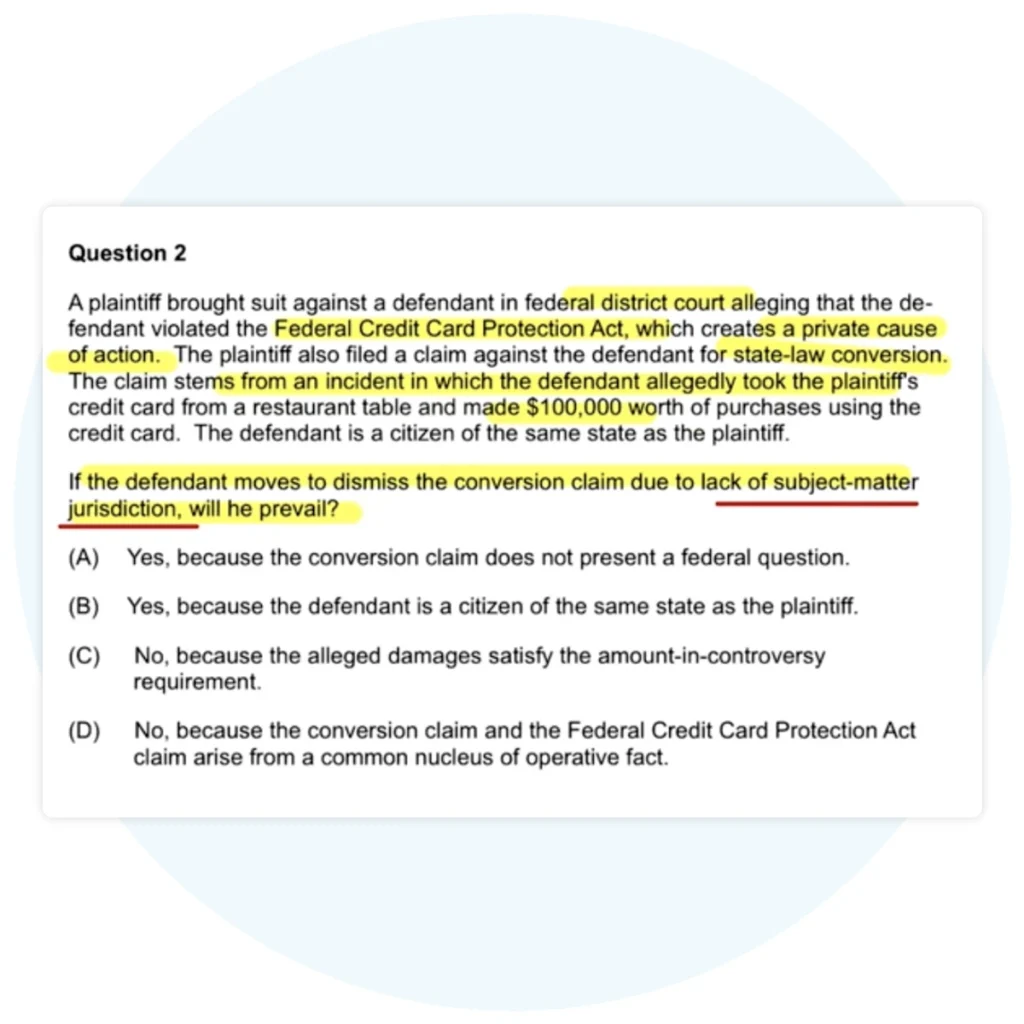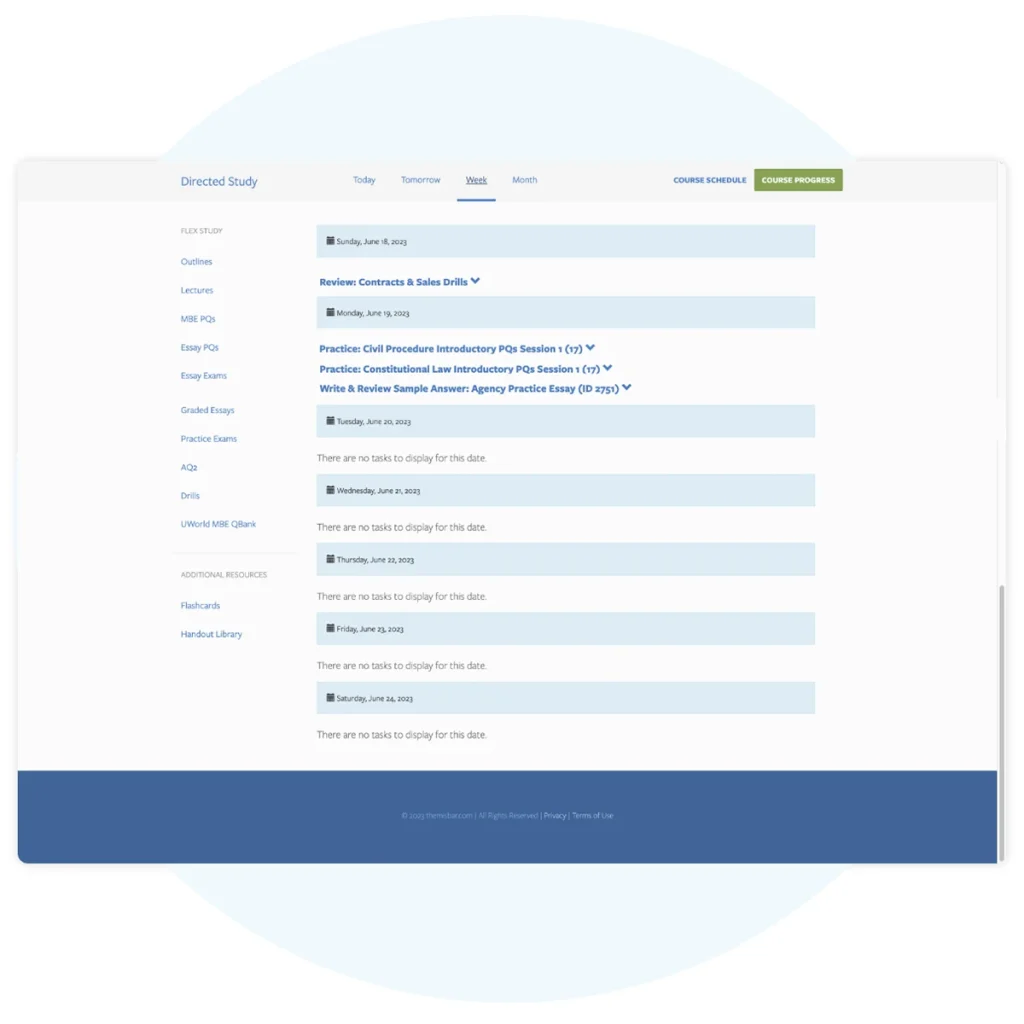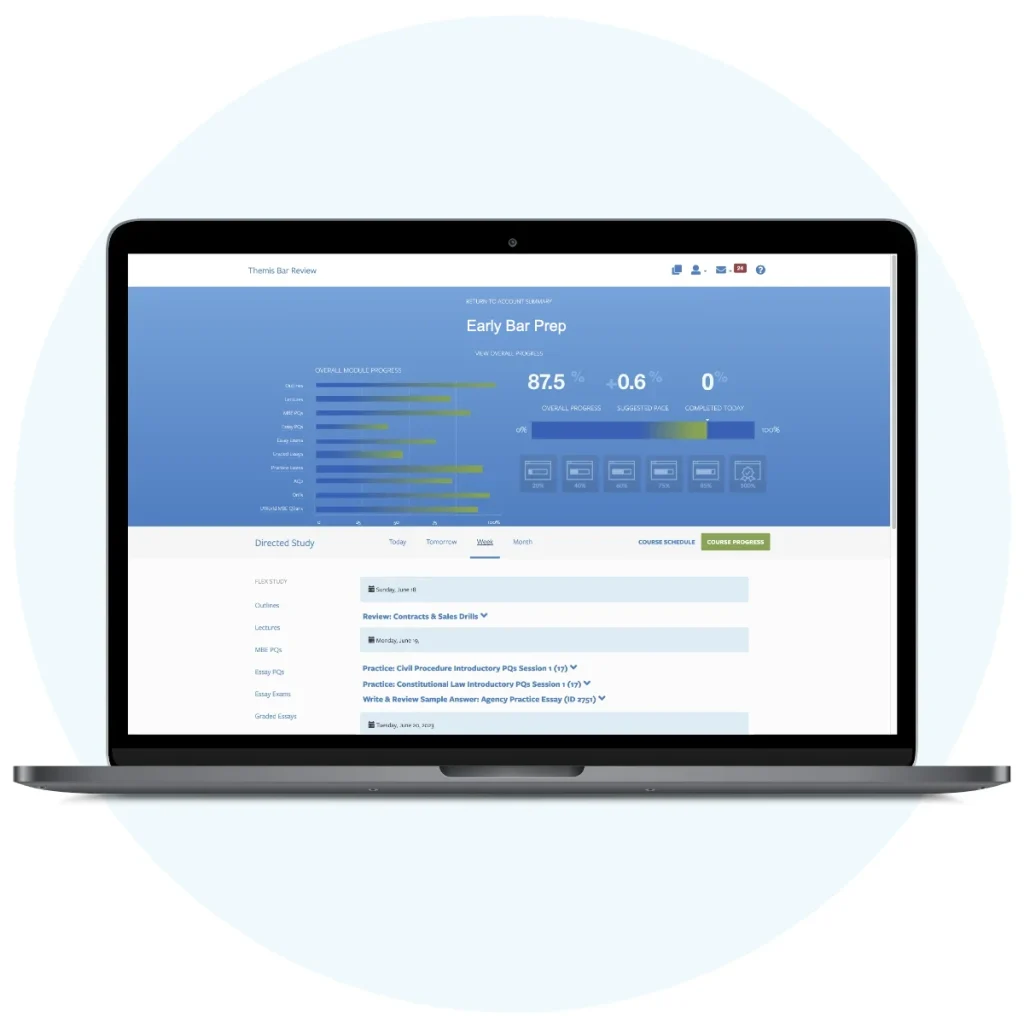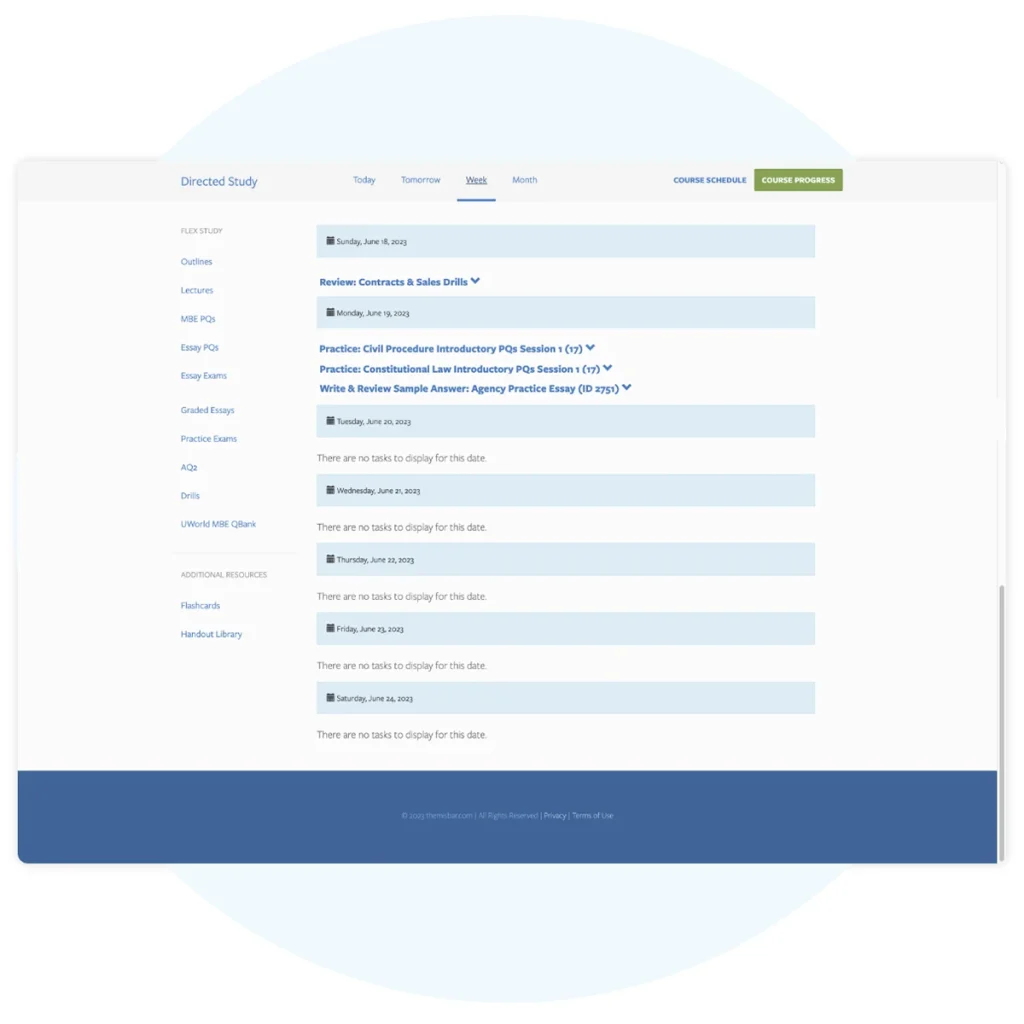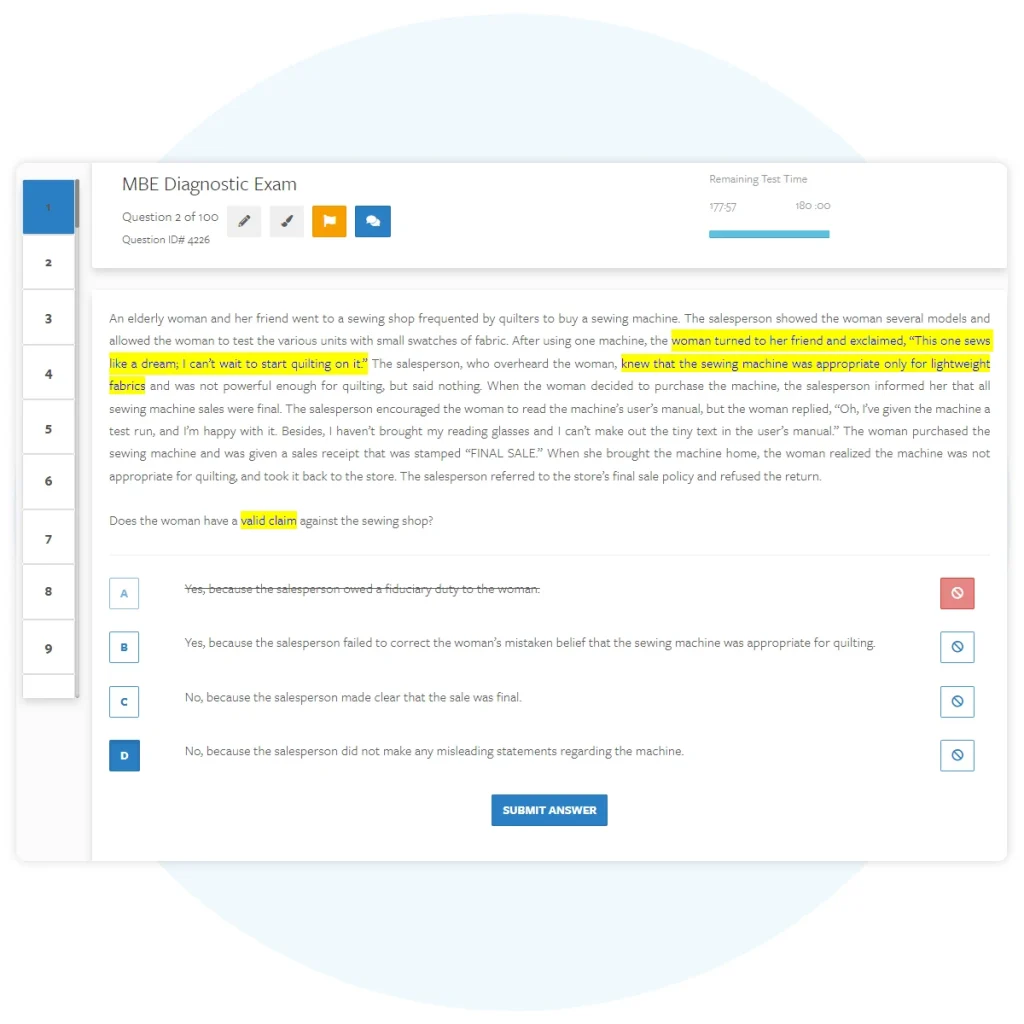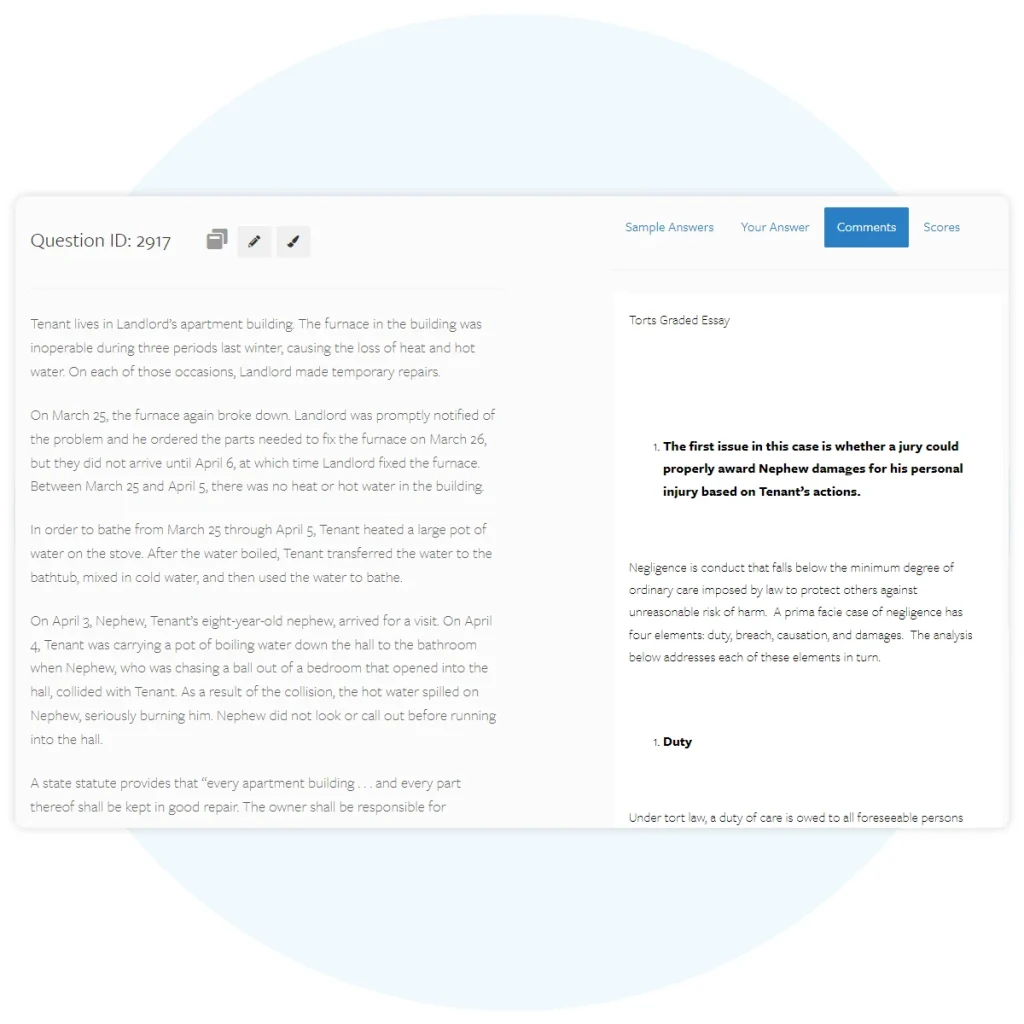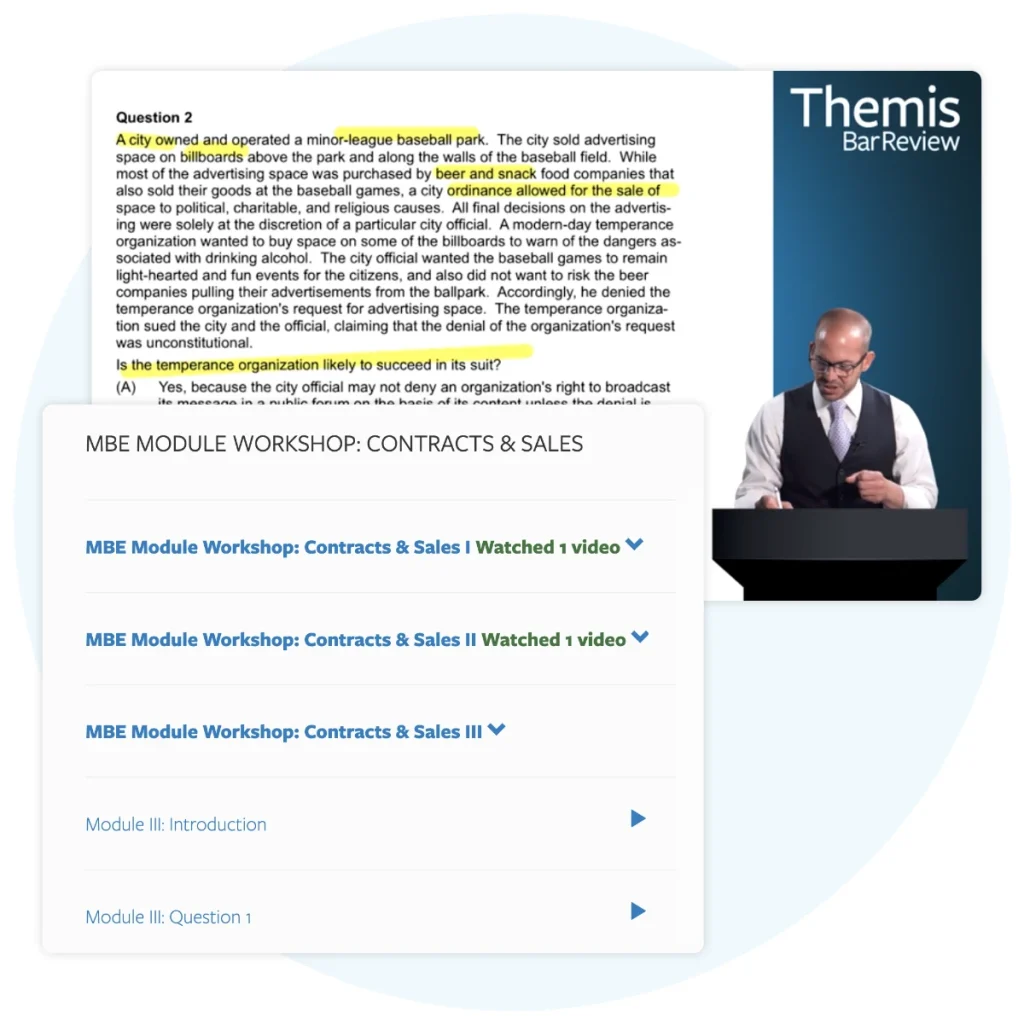Early Bar Prep
Maximizing Opportunities for Student Success
Customized 3L Early Bar Preparation Course
There is no one-size fits all curriculum. We’ll customize your EBP course to meet your school’s specific-goals and create a customized online portal containing subjects and topics covered in the course. The EBP program is typically organized in one of two ways:
Subject Focused
One-semester focusing on three to four MBE® subjects in their entirety (this can be extended over two semesters to cover all seven MBE subjects).
Subtopic Focused
One semester focusing on highly tested subtopics within all seven MBE subjects.
A Research-Backed Educational Framework
The EBP course is organized around four pedagogical methods, proven to increase student performance, understanding, and recall.
Metacognition
Self-Regulated Learning
Retrieval
Practice
Cognitive Schema Theory
Preparing Your Students for the Bar Exam
From the opening assessment to the final day of the course, we provide the structure, tools, support, and
resources you need to improve student outcomes.
Subject Organization
Subtopics within each MBE subject are organized as stand-alone modules to help students develop proper schema. Every module contains the following components:
- 1 online outline
- Substantive law lectures
- Assessment questions
- 15 practice multiple-choice questions
- 1 multistate essay (optional)
Flipped Classroom Model
Students will cover one module per week using their customized online accounts. Outside of class, they will complete the assigned substantive law review and practice questions as a prerequisite to classroom discussion, and test themselves with MBE and essay questions.
Class Schedule
Classes begin with the teacher addressing the substantive law principles that students studied for homework, then faculty will provide a thorough review on the best way to approach practice questions from the applicable topic, and finally students will be given an essay self-evaluation sheet to self-assess areas of weaknesses so they can develop them into strengths.
Exam-Level Assessment
Exams are customized to the specific needs of the law school and often include individual subject assessment exams, midterm(s), and a final exam, all of which consists of multiple-choice questions and/or essays. All questions are written by in-house legal experts to meet or exceed exam-level difficulty and reflect the format and style of recent MBEs.
Essay Grading and MPT Practice
Educators can opt to use a few weeks of the EBP course to prepare students for the MPT, including techniques on how to organize and write the frequently tested documents. Essay grading and detailed, personalized feedback are also available from licensed attorneys for an additional fee.
Professor Materials and Support
In addition to training faculty to deliver your program and remain available throughout the course, we provide:
- Lecture and outline breakdowns
- Full-length subject outlines
- Filled-in lecture handouts
- Practice essay questions and answers
- MCQs and answer rationales
- Instructions on navigating the online portal
- Essay roadmap(s)
- Strategies for approaching practice questions
- Weekly PowerPoint Class Presentations
Start Improving
Student Outcomes Today
Get a personalized demo and learn more by reaching out to our sales team.

